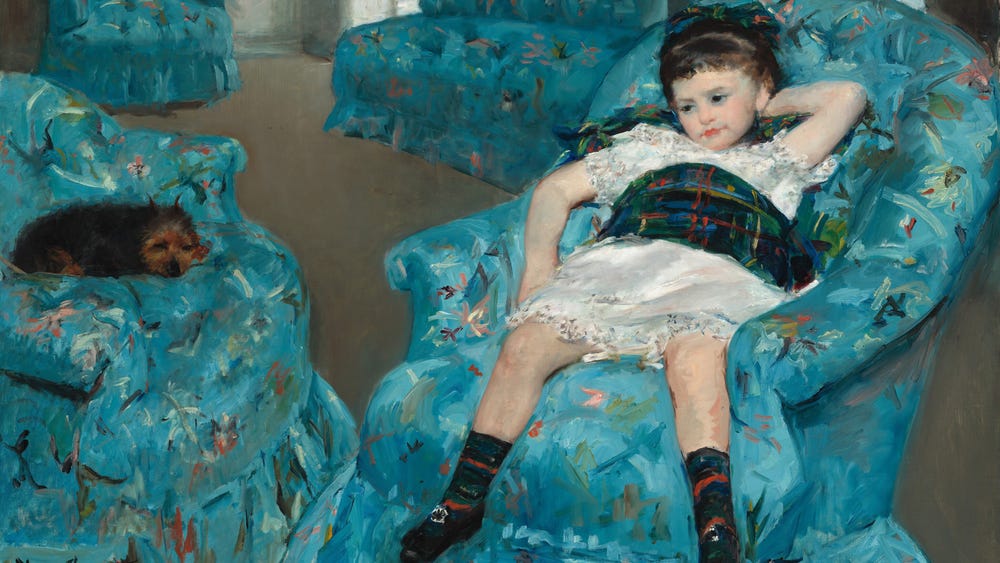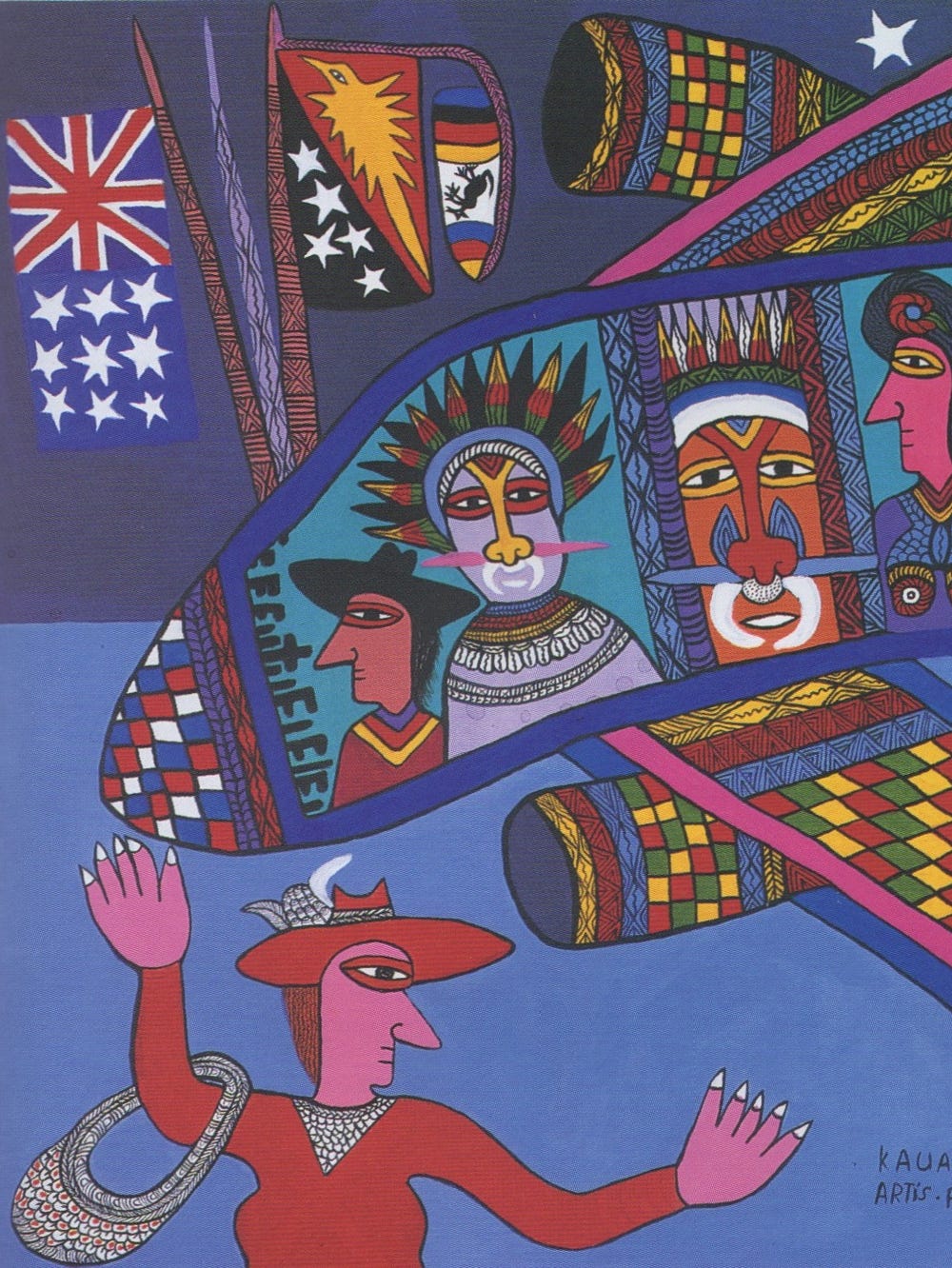Mary Cassatt (1844–1926), Little Girl in a Blue Armchair (detail), 1877–1878. Oil on canvas, 35 1/4 x 51 in. (89.5 x 129.5 cm). National Gallery of Art, Washington, D.C. Collection of Mr. and Mrs. Paul Mellon, 1983.1.18
Mary Cassatt at Work
Too often dismissed as a sentimental painter of mothers and children, Mary Cassatt (1844–1926) was in fact a modernist pioneer. Her paintings, pastels, and prints are characterized by restless experimentation and change. Cassatt was the only American to join the French Impressionists, first exhibiting with the group at Degas’s invitation in 1879, and quickly emerged as a key member of the movement. Alongside scenes of women at the opera, visiting friends, and taking tea, Cassatt produced many images of “women’s work” — knitting and needlepoint, bathing children, and nursing infants. These images suggest parallels between the work of art making and the work of caregiving. The exhibition calls attention to the artist’s own processes of making — how she used her brush, etching needle, pastel stick, and even fingertips to create radical art under the cover of “feminine” subject matter.
Exhibition preview
In the news
-
Lou Fancher, Bay City News
The works demonstrate her bold explorations, mastery of multiple techniques and determination to live as a successful professional artist operating in the male-dominated 19th century art world.
-
Tony Bravo, SF Chronicle
Mary Cassatt inspires a kind of synesthesia in my body. The American Impressionist created works of such vibrancy, yet softness.
-
Veronica Esposito, KQED
It’s the agency and independence of Cassatt’s subjects, be they young or old, that resonates for a modern viewer of ‘Mary Cassatt at Work.’
Stories
Featured collection artworks
More info
Sponsors
This exhibition is organized by the Philadelphia Museum of Art in collaboration with the Fine Arts Museums of San Francisco.
Presenting Sponsors
John A. and Cynthia Fry Gunn
Diane B. Wilsey
Barbara A. Wolfe
Major Support
Gretchen B. Kimball
Significant Support
Margaret & Will Hearst
The Diana Dollar Knowles Foundation
Generous Support
Sandra Bessières
Jack Calhoun and Trent Norris
Edina Jennison
Christine & Pierre Lamond
Additional support is provided by Leslee and Roger Budge; Dr. Leontina Kelly Gallagher; the Lisa and Douglas Goldman Fund; The Hoefer Family; Wendy W. Kwok and family; Fred Levin, The Shenson Foundation; Jan and Bob Newman; and Nancy and Alan Schatzberg.
This exhibition is supported by an indemnity from the Federal Council on the Arts and the Humanities.
This exhibition was organized with the support of the The National Endowment for the Humanities: Democracy demands wisdom. Any views, findings, conclusions, or recommendations expressed in this exhibition do not necessarily represent those of the National Endowment for the Humanities.




















